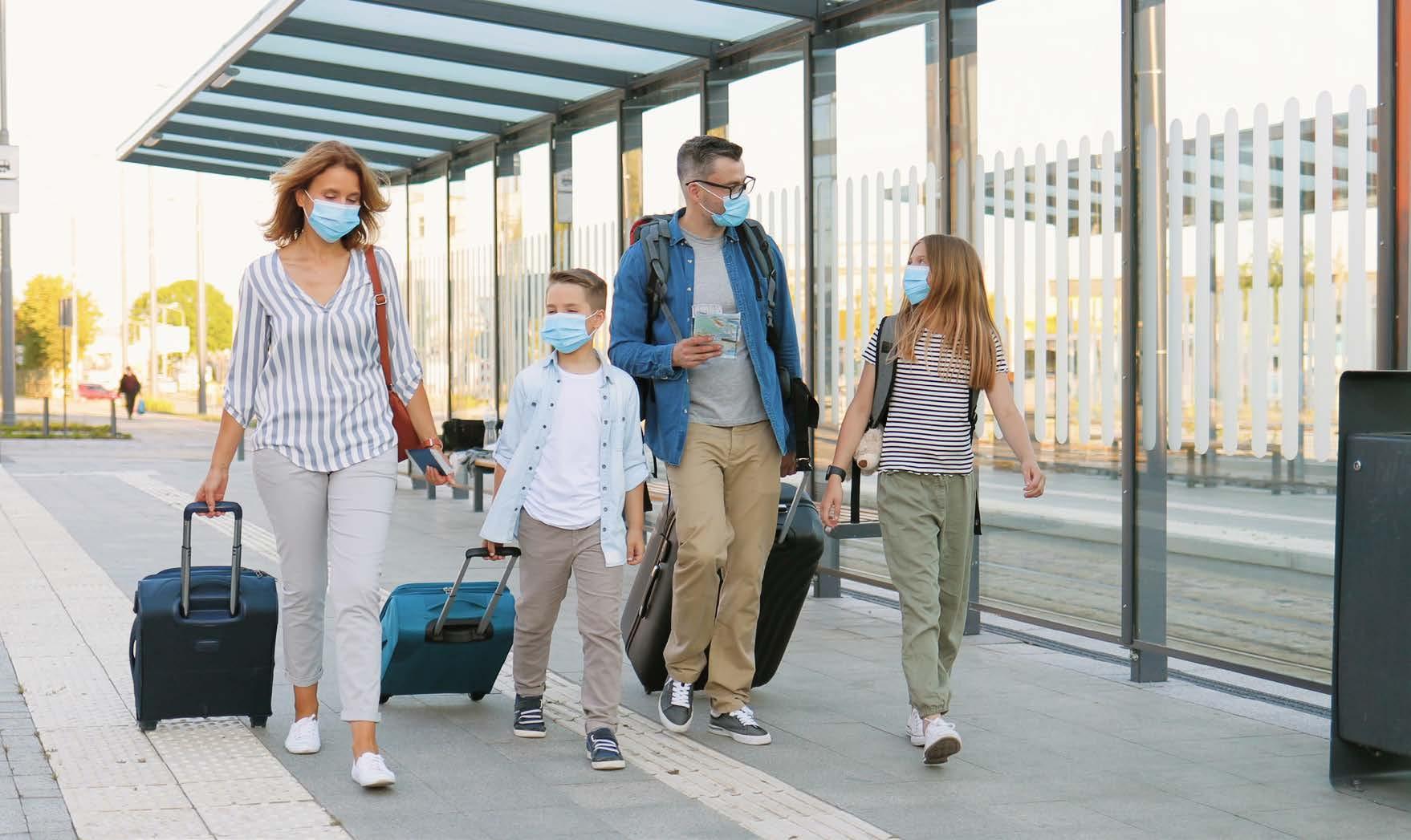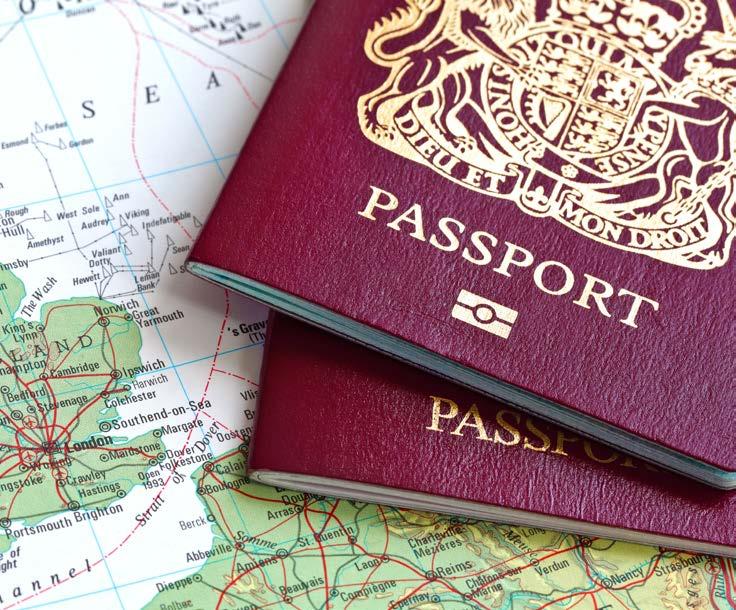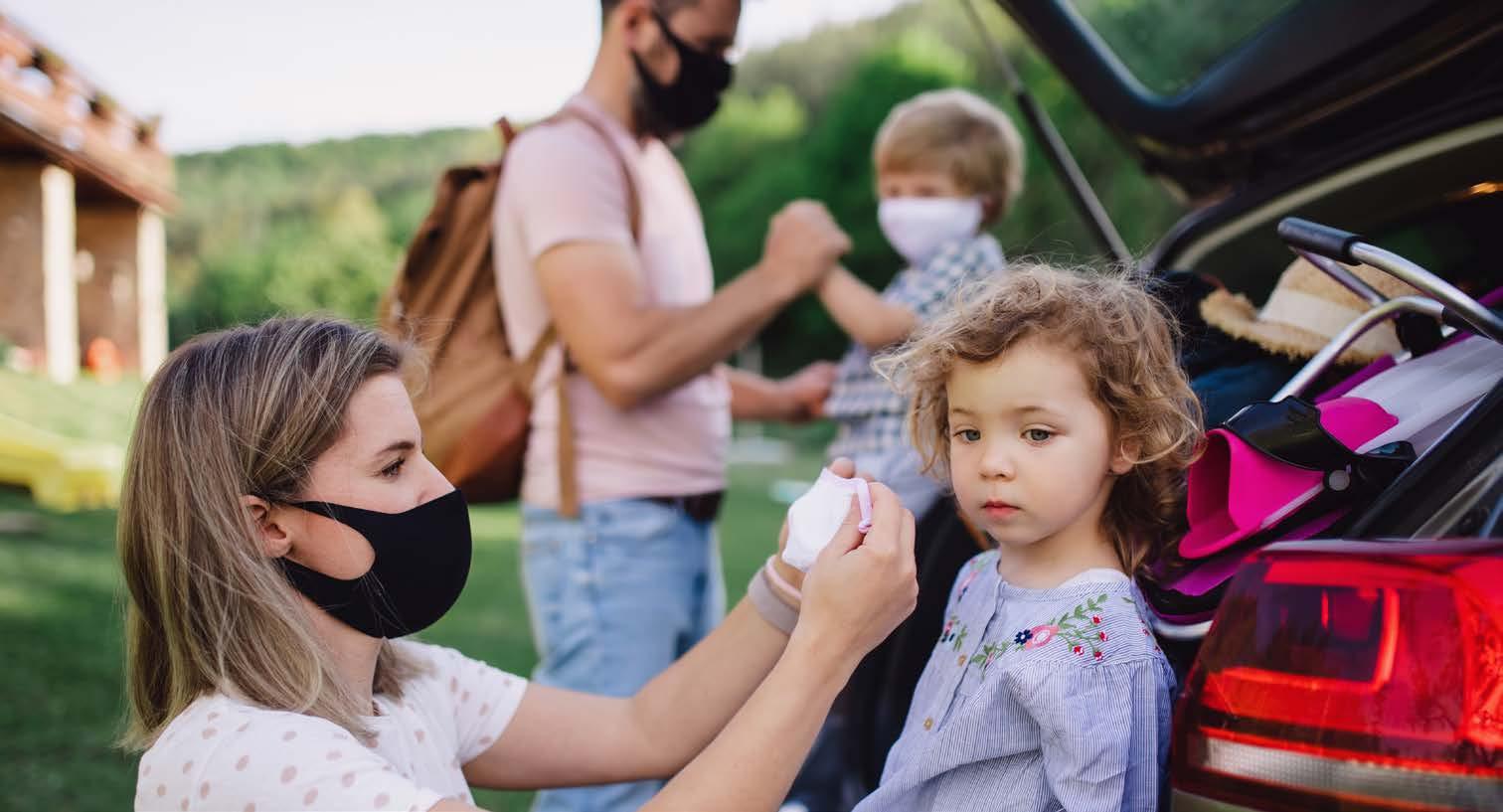
4 minute read
How to Prepare for your Holiday
How to Prepare for Your Holida y
Top tips for families going on holiday in today’s changing travel landscape
Advertisement
After months of travel restrictions, many families are keen to enjoy a well-deserved break but may be unsure as to how the global pandemic and subsequent changing travel landscape is likely to affect their holidays.
ABTA – The Travel Association has created a step-by-step guide, ‘Get Ready for Travel’, to assist those going away on late summer breaks, October half-term holidays and beyond. Advice includes how to prepare before you go, how the holiday might be different to previous experiences, and what to expect on the return journey.
Read on for some top tips to help you enjoy a smooth and fun-filled holiday and download the full advice for free at www.ABTA.com/ restartingtravel. BEFORE YOU GO
Check the Foreign, Commonwealth & Development Office (FCDO) travel advice It’s important to regularly check the FCDO travel advice for your destination, as it provides essential information on entry requirements, advice on health, safety and security, and any specific requirements relating to COVID-19. You can sign up to receive email alerts for specific countries at www.gov.uk/foreign-traveladvice/email-signup. Take out travel insurance Make sure you have comprehensive travel insurance which includes illness, repatriation

and any activities that you and your family plan to do. Take a copy of your policy and the emergency assistance contact number with you and leave a copy of your travel details with your emergency contact at home.
Check your passport validity and vaccination requirements Check your passports are valid for your travel dates and allow plenty of time to renew them if necessary. Certain destinations require at least six months’ validity on your passport. Visit TravelHealthPro.org.uk to see if your family needs any vaccinations and ensure you take an adequate supply of medication, should you have to stay longer than planned. Research new requirements for your journey Check the airport/port/station website for any new measures to aid check-in and movement through the terminal, and for any changes to accessibility requirements. Take plenty of hand sanitiser and face coverings for the whole family, as these will need to be worn at the airport, on your flight and on transfers. Very young children are not usually required to wear face coverings, but the requirements will vary depending on where you are going. Remember to replace face coverings regularly or wash reusable masks after each use.

Arrive early as check-in time may be increased, boarding gates may close earlier and socially distanced queues or one-way floor markings could mean it takes longer to get through security and immigration. Plan your meals in advance as shops and restaurants may be closed or at reduced capacity and meal services may not be available onboard. Check luggage requirements for any new weight or carriage restrictions and keep hand luggage to a minimum prioritising items such as travel and booking documents, your travel provider’s contact details, medication, face coverings, hand sanitiser, baby formula, nappies and books or games to keep children occupied.


Follow local laws and public health guidance Follow the advice of the local public health authority and understand that measures are designed to keep you and the local people safe.
Speak to your travel provider or accommodation staff if you need any clarity. Check the rules regarding face coverings and social distancing when using public transport, visiting local attractions or shops and visiting hospitality venues such as pubs, bars and restaurants. If you, or someone in your family becomes unwell, notify your travel provider and accommodation staff and follow their advice, which may include self-isolation, seeing a doctor and having meals delivered to your room. If you are contacted by the NHS test and trace service, you should follow their advice and advise your accommodation provider, travel provider and insurance company. Be aware that your holiday may be different Cash might not be accepted at your destination, so make sure your cards are set up to be used abroad and, wherever possible, are contactless. New measures to prevent the spread of COVID19 may include changes to reception services, dining arrangements, the use of the pool, beach and leisure facilities, entertainment programmes, children’s clubs, babysitting services, and medical services. Make sure you follow the enhanced cleaning regimes and illness and hygiene monitoring procedures in place by accommodation and transport providers.
WHEN YOU RETURN
Plan your journey in advance As with your outbound journey, allow plenty of time to get to the terminal and arrive early as everything might take a little longer. Check if your car hire provider has any special requirements for returning the vehicle and check social distancing and face covering requirements for public transport or private transfers.
Follow the requirements in the UK 48 hours before you come home, make sure you complete the Public Health Passenger Locator form as required by UK Border Force (each person in your party will need to do this) and have either a paper or electronic copy ready for inspection. If you are required to quarantine on your return, you should go home by private transport where possible and follow government guidance. If you feel unwell, contact NHS 111. Let them know your travel history, and follow any advice given. If you are diagnosed with COVID-19, notify your travel provider. Information correct at time of going to press 04/09/2020 but is subject to subsequent change











